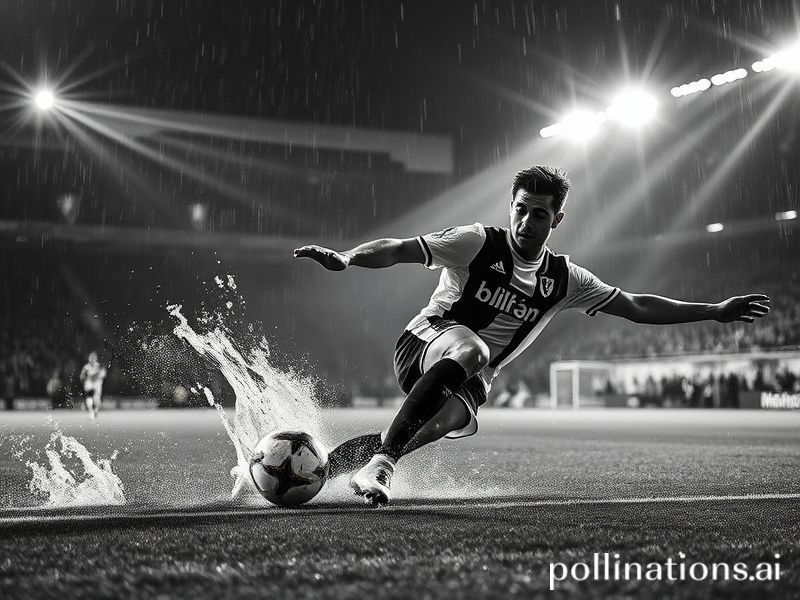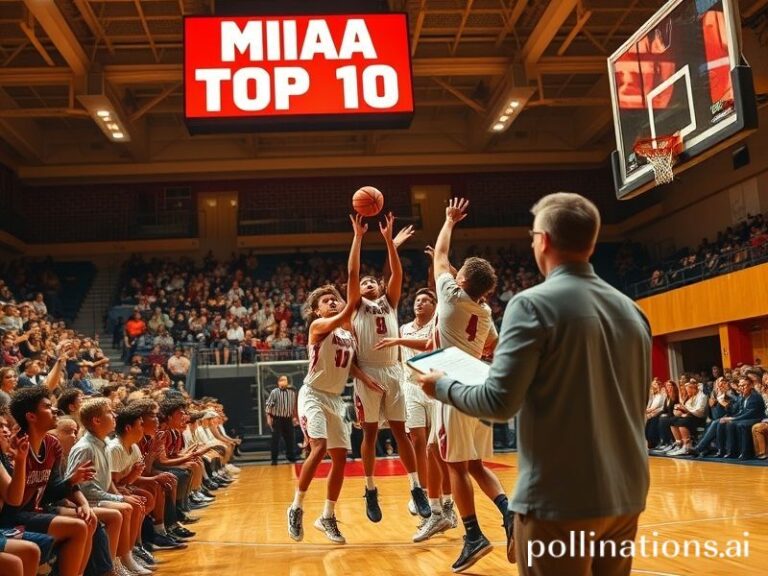Global Tackle: How João Palhinha’s €55 Million Transfer Became the World’s Most Expensive Mood Ring
The planet is 71 % water, but this week the other 29 % is busy arguing about a 1.82-metre Portuguese scarecrow named João Palhinha. From the glass towers of Singapore to the corrugated favelas of Rio, the same phrase is trending: “Palhinha’s finally gone.” Fulham supporters are sobbing into their overpriced craft beer, Bayern Munich accountants are high-fiving over amortisation tables, and the rest of us are left wondering how a man whose main job is to commit socially acceptable assault in the middle of the pitch became the latest barometer of late-capitalist anxiety.
In theory, João Palhinha is a defensive midfielder. In practice, he is the human embodiment of a red-and-black “Do Not Disturb” sign, a one-man embargo on joy. Since 2022 he has broken more Premier League ankles than British weather and NHS waiting lists combined. Last season he topped Europe’s tackling charts with 147, which is only eleven fewer tackles than the entire French Parliament managed on its own labour reforms. Small wonder Bayern Munich—who already collect midfield destroyers the way Silicon Valley collects data—finally stumped up the €55 million release clause. They’re calling it “strategic defensive reinforcement.” Everyone else is calling it “panic buying for people who’ve run out of wars.”
The deal’s global footprint is instructive. Palhinha’s transfer fee equals the GDP of the Pacific nation of Tuvalu, with enough change left over for a small aircraft carrier (or, more practically, a London parking permit). Meanwhile, oil-rich Fulham—owned by an Egyptian who made his fortune parking cars—pocket the profit and immediately leak links to a 19-year-old Ecuadorian prodigy who’s been alive for fewer days than Elon Musk has court cases. Somewhere in Lausanne, FIFA executives toast the “health of the football economy,” which is rather like congratulating a tumour on its steady growth.
But the story travels further than spreadsheets. In Manila, ride-hailing drivers debate whether Palhinha could stop Manila traffic; in Lagos, okada riders argue he’d be more use than the police; in Kyiv, trench-dwelling soldiers joke they could use him on the eastern front, ideally with a pair of shin pads as improvised armour. The joke is grim, yes, but so is the world that exports its best tacklers while it imports everything else—including, increasingly, the refugees those same conflicts create. Palhinha’s boots, stamped “Made in Portugal,” will now be worn on pitches where €55 million is the price of a decent left-back, not a hospital.
And yet the move is oddly reassuring. In an era when artificial intelligence can write your emails, deepfake your face, and probably ghost-write your autobiography, Palhinha is defiantly analogue: a man whose primary skill is kicking other men, slightly later than the referee prefers. He is the anti-algorithm, the glitch in football’s otherwise seamless monetisation plan. Every crunching tackle is a small act of rebellion against the sport’s Disneyfication, a reminder that some things—like cartilage—remain stubbornly un-digitisable.
Bayern, of course, will discover the catch soon enough. Palhinha is a yellow-card magnet whose disciplinary record resembles a Jackson Pollock in turmeric. Bundesliga referees—already card-happy after too much Oktoberfest—will have their spray cans ready. When the inevitable suspension arrives, the same analysts now praising the deal will pivot to think-pieces headlined “Bayern’s Midfield Malaise.” The cycle will repeat until another club in another league decides it needs its own personal thunderstorm.
And so the circus rolls on. Somewhere in the Algarve, a ten-year-old boy wearing last season’s Fulham shirt stares at the horizon and dreams of tackles yet to come. His parents, scanning Zillow for a bigger house, quietly hope he grows up to be a centre-back instead. Everyone, it seems, wants a piece of the action—except the ankles, which would prefer early retirement.
In the end, Palhinha’s transfer is less about football than about the world that watches it: frantic, expensive, and increasingly good at breaking things. The planet keeps spinning, the tackles keep flying, and the bill—like the bruises—always finds someone to pay it.







